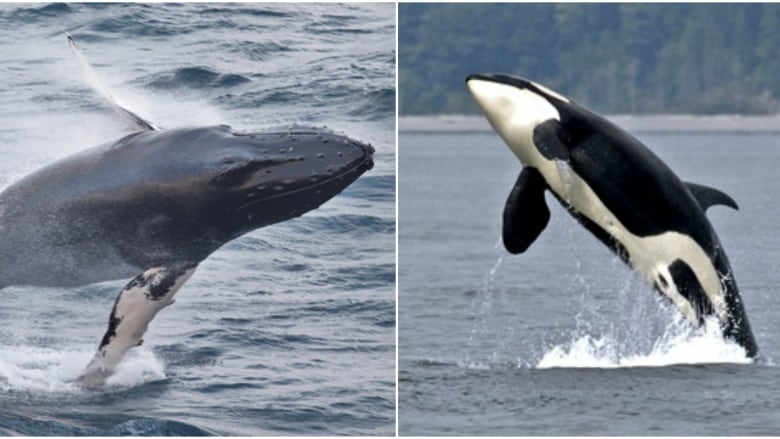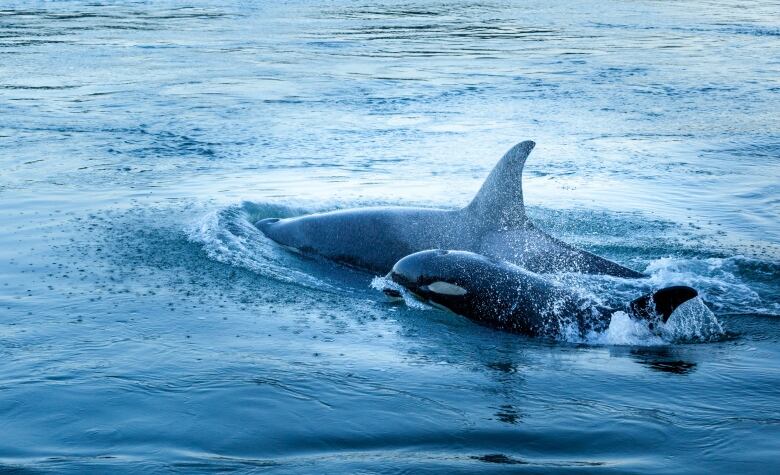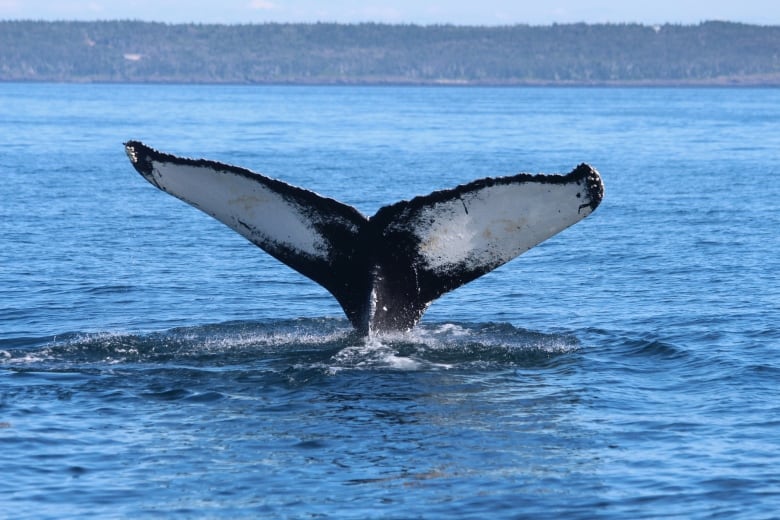Whale wars: humpbacks versus orcas focus of new study
Humpbacks will actively break up orca attacks on other marine mammals like seals and gray whales: study

It's a strange marine phenomenon: humpback whales actively defend other marine mammals like seals and grey whales from orca attacks, according to a new study.
But while some people might call it a rare example of interspecies altruism, the study also found thatthese attacks are likely a survival behaviour due to orcas' tendency to feed on humpback calves.
Robert Pitman, a marine ecologist in the National Oceanic and Atmospheric Administration's Southwest Fisheries Science Center in southern California, is the lead author of the study recently published in the Marine Mammal Science journal.
He told The Early Edition he first became intrigued about the phenomenon during a research trip to Antarctica.
"One day, we saw a killer whale chasing a seal. [The seal] started swimming out towards where a humpback was at the surface, and the humpback rolled over, and lifted the seal up on its chest," he said.

Pitman thought the protective stance might have been an accident, but he was wrong.
"As the humpback lifted the seal out of the water, it started to fall off. The humpback lifted its giant flipper and nudged [the seal] back to the middle of its chest again."
The humpback was actively helping the seal get away from the killer whale, he said.
'Humpbacks aren't very clever'
Pitman canvassed fellow researchers around the worldand through his researchhe thinksthe most logical explanation for the humpbacks' behavior is perhaps less heroic than it looks.
Some orcas feed on humpback calves, he explained, and when humpbacks charge in and break up orca attacksthey sometimes save the life of a humpback calf.
He said the whales have just extendedthis behaviour to whenever they hear orcas attack sometimes swimming in to break up the fightfrom two kilometres away.
"Humpbacks aren't very clever. They've got one way of dealing with this, and that's just stopped the killer whales from killing ... it's the net effect that's important for them," Pitman said.
The orcas are actuallythe ones that could be in danger, Pitman addedan 18-foot humpback tail could easily deliver a lethal blow to an adult killer whale.

Pitman expects these humpback-orca encounters to continue, as humpback populations begin to rebound from decades of hunting.
As for whether he thinks these whales are truly altruistic guardians of the deep?
"They are acting altruistically, but they are acting in their own self-interest."
With files from The Early Edition.
To listen to the interview, click on the link labelled Whale wars: humpbacks take on orcas.












_(720p).jpg)


 OFFICIAL HD MUSIC VIDEO.jpg)
.jpg)



























































































